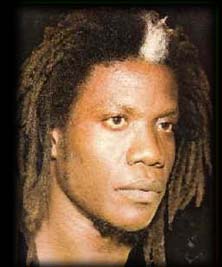World Literature
in English
Anglophone Caribbean Poetry:
The Empire Writes Back
-
The English and the Caribbean Literatures:
The relationship of English literature to the works of those writers from
(ex)colonial societies is now mainly characterized by a counter-discursive
(writing back) approach (Cf. The
New Empire Within Britain --by Salman Rushdie; The Mighty Sparrow's
"Dan
is the Man").
Poetry, prior to [the 40's], was really English poetry, the work
of ruling class of englishmen and travellers recording their impressions
of the 'sugar isles' and the exhilaration of British imperial sway in an
idealized 'tropical paradise.' (Cf. Benson.)
-
Major Developments:
-
Rise of anti-colonial consciousness in 1930's-1940's and the need
for "Caribbean voices."
-
1980's--remarkable increase of women poets, the emergence of dub
poetry, the increasing prominence of the East Indian voice.
-
Important Poets: Derek Walcott, who wins the 1992 Nobel Prize for
Literature., Eward Kamau Brathwaite, Lorna Goodson, Wayne Brown, Dennis
Scott, David Dabydeen, Cyril Dabyden, Claire Harris, Dionne Brand, etc.
-
Politicizing the Popular: Dub Poetry and the Calypso
This is part of a shift in cultural focus from the canonical writers
of Empire to those representatives of a popular indigenous tradition.
Dub poetry--an extension of reggae culture
Dub, an indigenous usage in this context, is a form of performance
poetry having its roots in popular Jamaican culture, and more particularly
in reggae and Rastafarianism. The movement has served to bring poetry,
or at least some poetry, back to the people, although the performance-entertainment
aspect sometimes mask shallow content and creativity.
Famous examples:
-
Mikey Smith (1954-83), "He was stoned to death in Jamaica in a political
incident. Smith was a remarkable performer who believed in thorough
preparation. He worked like a musician. He said of himself:
'Me is a man who have built-in rhythms in my head, an me can hear dem.'
He would practise for hours with a tape recorder, testing various renditions."
  for "Black and White"
for "Black and White"
-
What are the various meanings of the words "black" and "white"?
How can concept and the march be black? How about the song which
is "all black?" Why are solutions "not all black"?
-
Read the poem and feel its power.

-
Mutabaruka (1952- ) Brought up as a Roman Catholic, he became Rastafarian
as a young adult. . . . Now widely acknowledged as an outstanding
oral poet, Mutabaruka regularly performs in Jamaica and has captivated
diverse audiences abroad. . . . In Mutabaruka's work, as in
that of other 'dub poets," there is a considerable elements of protest
against poverty, inequality, racism, class oppression, political deceit,
and the baleful infunece of powerful nation."
  for "dis poem"
for "dis poem"
-
What does "dis poem" speak very powerfully for and against?
-
While being so powerful, why does the speaker say that "dis poem need to
be changed"; "is speakin have spoken"; "shall continue even when poets
have stopped writin"? What concept of the author is implied here?
In other words, who is (are) writing this poem?
-
After this suggestion of continuing existence of the poem, why does
the speaker then say "dis poem is still not written"?
-
Who is the "u [you]" this poem addresses?
-
Mutabaruka Web Site
-
Linton
Kwesi Johnson
Calypso: (see Caribbean
culture page for definition)
'Calypso originated in West African griots and developed alongside
other traditional Caribbean songs to incorporate "elements of digging songs
changed by people at work; belair and calinda songs when they play; shango
and shouter baptist revival songs when they worship; and insurrectionary
songs such as were sung by slaves in revolt" (Errol Hill 1971: 23).
The calypso has remained a cultural form which speaks of and to an often
illiterate workin-class audience, as Hill points out: "The one great leveller
was the calypsonian. He sang with courage and wit, debunking
and defending the small" (24). . . . (Donnell 125)
'However, . . . [this Calypsonian representation of working-class
consciousness is not unproblematic. e.g. sexism. ]
The calypsonian--a public figure who through performance conjured up
a male ego in the face of dire and disempowering social circumstances.
. . . hostility to women of the calypso during this period [1930-40] .
. . (Donnell 125)
Calypso singer: The
Mighty Sparrow
"Dan is the Man"
is also in part a 'plea for orality' (Thieme 1994). Not only is it
crucial to account for the performance element in any assessment of the
calypso form, but calypsos also intervene significantly in cultural debates
regarding the privileged status of written texts and the nature of literature
itself. (Donnell 126)
Reference Books & Relevant Links:
Benson, Eugene, & W. Conolly, eds. Encyclopedia
of Post-Colonial Literatures in English. 2 Vols. New York:
Routledge, 1994.
Donnell, Alison, et al. eds. The Routledge
Reader in Caribbean Literature. NY: Routledge, 1996.
Derek
Walcott (St. Lucia)
|